Introduction
Small tractors for agriculture are indispensable tools for modern farming, especially on small to medium-sized farms. These versatile machines are designed to perform a variety of tasks, from plowing and tilling to hauling and mowing. Choosing the right small tractor for your agricultural needs can significantly enhance your productivity and efficiency. In this comprehensive guide, we will explore the key factors to consider when selecting a small tractor for agriculture, discuss the benefits of using these machines, and provide practical tips to ensure you make the best choice for your farm.
Understanding Small Tractors for Agriculture

What are Small Tractors?
Small tractors, also known as compact tractors, are lightweight and versatile machines designed for various agricultural tasks. They are typically equipped with powerful engines, robust hydraulics, and a range of attachments to handle different farming activities.
- Compact Design: Ideal for maneuvering in tight spaces.
- Versatility: Capable of performing multiple tasks with various attachments.
Key Features of Small Tractors for Agriculture
Small tractors come with several features that make them suitable for agricultural use. Understanding these features can help you choose the right tractor for your needs.
- Engine Power: Typically ranges from 15 to 50 horsepower.
- Hydraulic Systems: Essential for operating attachments like loaders and backhoes.
- Transmission Options: Manual, hydrostatic, or shuttle shift.
- Attachments: Compatible with a wide range of tools such as mowers, tillers, and plows.
Benefits of Using Small Tractors for Agriculture
-
 4 Wheel Drive 140HP Tractor 1604
4 Wheel Drive 140HP Tractor 1604 -
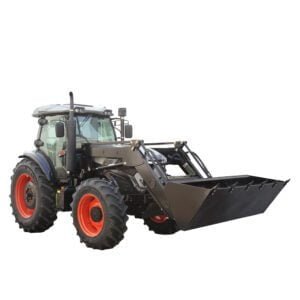 140HP Farm Tractor 1404
140HP Farm Tractor 1404 -
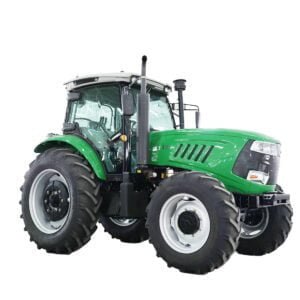 130 HP Farmall Tractor 1304
130 HP Farmall Tractor 1304 -
 The Heaviest QILU 260HP Modernization Tractor
The Heaviest QILU 260HP Modernization Tractor -
 Powerful QILU 240HP Heavy Chassis Tractor
Powerful QILU 240HP Heavy Chassis Tractor -
 International Standard Power QILU 220HP Farming Tractor
International Standard Power QILU 220HP Farming Tractor -
 China 100HP Tractor Supplier
China 100HP Tractor Supplier -
 OEM 80HP Tractor Factory
OEM 80HP Tractor Factory -
 China 70HP Tractor Wholesale
China 70HP Tractor Wholesale
Versatility and Efficiency
Multiple Attachments
Small tractors are designed to be compatible with a variety of attachments, making them highly versatile. This allows you to perform multiple tasks with a single machine, enhancing efficiency and reducing the need for multiple pieces of equipment.
- Common Attachments: Front loaders, mowers, tillers, plows, and backhoes.
- Quick Hitch Systems: Enable easy and fast attachment changes.
Time-Saving Operations
Using a small tractor can save you a significant amount of time compared to manual labor. These machines are capable of completing tasks quickly and efficiently, allowing you to cover more ground and accomplish more in less time.
- Increased Productivity: Perform tasks faster than manual methods.
- Efficiency: Reduce labor and operational costs.
Cost-Effectiveness
Affordable Purchase Price
Small tractors are generally more affordable than larger agricultural machinery. They offer a cost-effective solution for small to medium-sized farms, providing excellent value for money.
- Lower Initial Investment: Affordable compared to larger tractors.
- Value for Money: High performance at a reasonable cost.
Low Operating Costs
In addition to the lower purchase price, small tractors typically have lower operating costs. They consume less fuel and require less maintenance, making them an economical choice for farmers.
- Fuel Efficiency: Designed for optimal fuel consumption.
- Maintenance: Lower costs due to simpler mechanics.
Improved Farm Management
Easy Maneuverability
The compact size of small tractors makes them easy to maneuver in tight spaces and around obstacles. This is particularly beneficial for small farms with limited space and intricate layouts.
- Compact Design: Ideal for navigating small fields and tight areas.
- Enhanced Control: Precise handling and maneuverability.
Reduced Soil Compaction
Small tractors exert less pressure on the soil compared to larger machinery, reducing soil compaction. This helps maintain soil health and improves crop yields.
- Lightweight: Minimizes soil disturbance.
- Soil Health: Promotes better root growth and crop production.
Table: Key Features of Small Tractors for Agriculture
| Feature | Description | Benefit |
|---|---|---|
| Engine Power | 15 to 50 horsepower | Suitable for various farming tasks |
| Hydraulic Systems | Robust systems for operating attachments | Enhances versatility and efficiency |
| Transmission Options | Manual, hydrostatic, shuttle shift | Provides options for different needs |
| Attachments | Compatible with mowers, tillers, plows, and more | Versatile for multiple tasks |
| Quick Hitch Systems | Easy and fast attachment changes | Saves time and increases productivity |
| Fuel Efficiency | Optimized for lower fuel consumption | Reduces operating costs |
| Compact Design | Small and lightweight | Easy to maneuver and reduces soil compaction |
How to Choose the Best Small Tractor for Agriculture

Assessing Your Needs
Farm Size and Type
The size and type of your farm play a crucial role in determining the right small tractor for your needs. Consider the area you need to cover and the types of crops or livestock you manage.
- Small Farms: Compact models with lower horsepower.
- Medium-Sized Farms: Models with higher horsepower and more features.
Specific Tasks
Identify the specific tasks you need the tractor to perform. This will help you choose a model with the appropriate features and attachments.
- Common Tasks: Plowing, tilling, mowing, hauling, and planting.
- Specialized Tasks: Fertilizing, spraying, and livestock management.
Evaluating Tractor Features
Engine Power
The engine power of a small tractor is a critical factor to consider. Ensure the tractor has enough horsepower to handle your farming tasks efficiently.
- Horsepower Range: 15 to 50 HP.
- Task Suitability: Match horsepower to task requirements.
Transmission Types
Different transmission types offer various advantages. Choose a transmission that best suits your comfort and the nature of your tasks.
- Manual Transmission: Provides more control, suitable for experienced operators.
- Hydrostatic Transmission: Offers smooth and easy operation, ideal for beginners.
- Shuttle Shift Transmission: Combines ease of use with control, suitable for various tasks.
Hydraulics and Attachments
A robust hydraulic system is essential for operating attachments. Ensure the tractor is compatible with the attachments you need and has a powerful hydraulic system.
- Hydraulic Capacity: Sufficient for running multiple attachments.
- Attachment Compatibility: Check compatibility with necessary tools.
Considering Comfort and Safety
Operator Comfort
Comfortable operation is essential, especially if you spend long hours on the tractor. Look for features that enhance comfort and reduce operator fatigue.
- Comfort Features: Adjustable seats, ergonomic controls, and spacious cabins.
- Climate Control: Air conditioning and heating for year-round comfort.
Safety Features
Safety should be a top priority when choosing a small tractor. Ensure the tractor has essential safety features to protect the operator and bystanders.
- ROPS (Roll-Over Protective Structure): Prevents injury in case of a rollover.
- Safety Lights and Signals: Enhances visibility and safety during operation.
- Emergency Shut-Off: Allows for quick stopping in case of an emergency.
Budget Considerations
Purchase Price
Consider your budget when selecting a small tractor. Compare different models and their features to find the best value for your investment.
- Budget Range: Determine your maximum budget.
- Cost vs. Features: Balance price with necessary features and performance.
Operating Costs
In addition to the purchase price, consider the ongoing operating costs of the tractor, including fuel, maintenance, and repairs.
- Fuel Efficiency: Choose models with low fuel consumption.
- Maintenance Costs: Look for models with affordable and easy maintenance.
Conclusion: Small Tractors for Agriculture
Choosing the best small tractor for agriculture involves careful consideration of your specific needs, the features and capabilities of different models, and your budget. By assessing your farm’s requirements, evaluating key features, and considering comfort and safety, you can select a tractor that will enhance your productivity and efficiency. Small tractors are valuable assets for any farm, providing versatility, cost-effectiveness, and improved farm management. Investing in the right small tractor will help you achieve your agricultural goals and maintain a successful farming operation.
FAQ
What are the benefits of using small tractors for agriculture?
Small tractors for agriculture offer numerous benefits, including versatility, cost-effectiveness, and improved efficiency. They can handle a wide range of tasks such as plowing, tilling, mowing, and hauling, making them ideal for small to medium-sized farms. Their compact design allows for easy maneuverability in tight spaces, and they generally have lower operating costs compared to larger tractors.
How do I choose the best small tractors for agriculture?
To choose the best small tractors for agriculture, consider factors such as the size and type of your farm, the specific tasks you need the tractor to perform, and your budget. Evaluate features like engine power, transmission type, hydraulic capacity, and attachment compatibility. Additionally, consider the comfort and safety features of the tractor to ensure it meets your needs and enhances productivity.
What features should I look for in small tractors for agriculture?
When looking for small tractors for agriculture, key features to consider include engine power (typically ranging from 15 to 50 horsepower), robust hydraulic systems, versatile transmission options (manual, hydrostatic, or shuttle shift), and compatibility with various attachments. Additionally, look for comfort features such as adjustable seats and ergonomic controls, as well as safety features like ROPS (Roll-Over Protective Structure) and emergency shut-off.
How do small tractors for agriculture improve farm productivity?
Small tractors for agriculture improve farm productivity by allowing farmers to complete tasks more quickly and efficiently. They reduce the need for manual labor and multiple pieces of equipment, saving time and operational costs. Their versatility with various attachments enables them to perform multiple tasks, enhancing overall farm management and efficiency.
Are small tractors for agriculture cost-effective?
Yes, small tractors for agriculture are cost-effective. They generally have a lower purchase price compared to larger tractors, and their operating costs are also lower due to better fuel efficiency and simpler maintenance requirements. These tractors provide excellent value for money, especially for small to medium-sized farms, by offering high performance and versatility at an affordable cost.
What types of attachments can be used with small tractors for agriculture?
Small tractors for agriculture are compatible with a wide range of attachments, including front loaders, mowers, tillers, plows, backhoes, seeders, and sprayers. This versatility allows farmers to perform various tasks with a single machine, making small tractors highly efficient and cost-effective.
How does the compact size of small tractors for agriculture benefit farmers?
The compact size of small tractors for agriculture provides several benefits, including easy maneuverability in tight spaces, reduced soil compaction, and enhanced control. These tractors can navigate small fields, orchards, and vineyards with ease, making them ideal for farms with limited space or intricate layouts.
What are the maintenance requirements for small tractors for agriculture?
Maintenance requirements for small tractors for agriculture typically include regular oil changes, hydraulic fluid checks, air filter replacements, tire pressure checks, and inspection of attachments. Following the manufacturer’s maintenance schedule and conducting routine inspections help ensure the tractor remains in optimal working condition and extends its lifespan.
Can small tractors for agriculture handle heavy-duty tasks?
While small tractors for agriculture are designed primarily for light to medium-duty tasks, many models are capable of handling heavier tasks with the appropriate attachments. Tasks such as plowing, tilling, and hauling can be performed efficiently, but for extensive and heavy-duty operations, larger tractors may be more suitable.
How do small tractors for agriculture contribute to sustainable farming practices?
Small tractors for agriculture contribute to sustainable farming practices by reducing soil compaction, minimizing fuel consumption, and allowing for precise application of inputs such as fertilizers and pesticides. Their efficient operation and versatility enable farmers to manage their fields more effectively, promoting better soil health and higher crop yields.

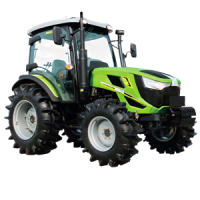
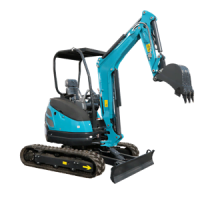
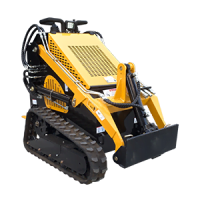
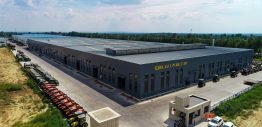
-1.png)